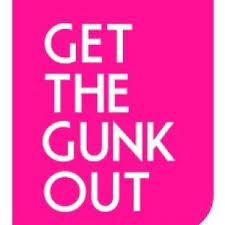Tag Archives for " friends "
You Don’t Need To Live A Double Life In Your Workplace
“You Don’t Need To Live A Double Life In Your Workplace.” – Raj Gavurla
Do you come to your job or the playing field leading a double life? You don’t need to. How is this possible? I’m there to work (complete tasks, etc.). That’s what they pay me to do. Years ago there was a job I inquired about with someone who worked for the company. He proceeded to tell me “you have to set up equipment”. I waited to see if he had more to say. He didn’t. I wasn’t interested in the job. Why? Because work is more to me than completing tasks (it’s part of the job) and receiving benefits. I understand you have family and friends outside of work you have fun, rewarding, and enjoyable camaraderie with. How about having fun, rewarding, and enjoyable camaraderie with your colleagues or teammates?
Camaraderie is one of the keys that keeps employees performing, retains, and recruits. It also plays a major role in wellness (well-being), motivation, inspiration, engagement, a positive attitude, leadership, and execution.
What’s a solution to nurture camaraderie in the workplace? By using a small group personal team matters approach. Do you have thousands, hundreds, less than fifty, ten to twenty, five or fewer employees or teammates? The larger the business, organization, or team the harder it is to have camaraderie with everyone. Regardless of size test the following:
Break up into “small personal teams”. A “small personal team” is a group that discusses (has dialogue) about personal matters not directly related to your job. For example, your family, what you’re doing this weekend, what you did this past weekend, your health, nutrition, fitness, your parents, kids aspirations, your non-work challenges, crisis, someone passing, accident, hobbies, movie, best place to get something, book you’re reading, mountains, sports, festivals, etc. Apply the learning.
A Customized Structure Might Look Like:
1. Ask people to participate sharing why. Do not require them to participate.
2. For those who join a personal matters team, make what’s discussed confidential. That doesn’t mean you can’t share your situation with someone outside of your group. Use your discretion.
3. Meet once a week for 45 minutes to an hour in a quiet place (conference room, courtyard, etc.)
4. Talk about and share personal matters important to each group member
5. Close the meeting
Use Metrics and Collect Data On The Outcomes:
Are employees mentally performing better?
Is employee retention increasing?
Is it easier to recruit?
What effect does it have on wellness (well-being), motivation, and inspiration?
What effect does it have on engagement, a positive attitude, leadership, and execution?
Small Personal Matters Team Examples:
Look at an amazing family
Look at a business team. One of the things employees, athletes, investors, donors, and philanthropists look at is the teamwork exhibited.
Look at our military. They have tremendous camaraderie protecting each other, to survive, and protect us. They know each other and have nicknames for each other making it easier to accomplish their mission.
Look at a sports team and you hear athletes talk about the camaraderie or if retired the camaraderie is what they miss.
I remember from reading Oscar Robertson’s biography he worked with people of a different skin color and they never had time for camaraderie. Just do the work because in those times that’s how it was. People didn’t know each other at work and never met outside of work with people of a different skin color. He said, “that hurt”. I’m sure some people of the other skin color had the same thought and feeling, “that hurt”. Thankfully, we the people have made tremendous cultural and societal progress.
Another example, I went to college to graduate/get an undergraduate degree in electrical engineering. That was the main goal. It’s the camaraderie with a few friends I remember and miss most. Although we don’t talk often or see each other as often I know, feel, sense, and believe we are connected forever.
My final example are my friends from Leadership Greenville. I shared with a small personal matters group my mom had a stroke. One told me his dad passed away from a stroke and another told me they had a family member who had a stroke and it’s a slow process. People get better. Until the emergency personnel told me your mom had a stroke, I’ve heard of the word stroke but knew nothing about it. Learning about a stroke and talking with my small personal matters team gave me lived experience insights I couldn’t get from a textbook that helped me to mentally perform to be a caregiver for my mom to make her well. She is talking better and she needs and wants to walk better and drive a car.
Implementing small personal matters teams in your businesses, organizations, and teams might transform the narratives, conversations, and outcomes. It should be helpful too and take pressure off and inhibit the performance anxiety your employees, team leaders, supervisors, managers, bosses, management, executives, and owners are experiencing. Yes, conventions, conferences, and special events are still needed and wanted for all your employees or sports team to participate in.
“A goal is not always meant to be reached, it often serves simply as something to aim at.”
– Bruce Lee
For programs and services, contact Raj at 864.569.2315, raj@rajgavurla.com
THE NEW TALENT POOL: WORKFORCE FOR HUMANITY
“Do prosperity work: create inspiring authentic dialogue.
Be a good listener: Personally, we the people (everyone), want each person to thrive.”
– Raj Gavurla
Where is the new talent pool? It’s within you! Take a look at these professions:
Engineer, Entrepreneur, Public Service, Doctor, Writer, Professional Speaker, Professional Athlete, Actor, Model, Musician, Professor, and add any profession(s) to your liking.
Is it within you? Be and/or become any of the professions of your liking and you will be able to forward practical perform winning valued money doing so. For example, you might work for a few minutes, hours, days, weeks, months, quarters, seasonally, or years doing one or any combination of the profession(s).
Your reply to “what do you do?” might be, “I’m an entrepreneur, engineer, professional speaker, writer, professional athlete, politician, doctor, actor, consultant, and coach.” They might give you an uncertain look. You reply, “I’m paid (valued money) doing each”.
What combination will you use to thrive?
“You can’t use up creativity. The more you use, the more you have.” – Maya Angelou
“Get The Gunk Out”: All Forms of Negativity
“You want something(s) that works or is working!” – Raj Gavurla
In talking with Jerry he told me his people work too much. For some reason, people are equating the amount of time with better outcomes. Of course, no one will accomplish anything professionally without putting in their time. However, do you maximize your better results with the time you put in?
In my work with clients, I discover one or more of the following three mental skills needing sprucing and honing:
1. They aren’t rewarding themselves mentally.
2. They are being too hard on themselves.
3. They need to “get the gunk out” (get rid of all negativity)
They aren’t rewarding themselves mentally
You want a robust life, better living, and better future. Yes, someone might think someone doesn’t want that that’s why they are where they are. Non-sense! Since you are a robust being a combination of activities interact so you can shine brighter. To reward yourself categorize them and after achieving them reward yourself with mental points. It can be 1, 1,000, 5,000, 10,000 or any number for the accomplishment of each category. Only reward yourself with the points after it’s completed. For example, your categories could be:
1. Woke up looking forward to the day. Attack the day. (1,000 points)
2. Did my mental performance routine(s), stretching exercises, and ate breakfast with appreciation? (1,000 points)
3. Got the kids ready. (1,000 points)
4. Did work. (1,000 points)
5. Inspire yourself through the negative thoughts (1,000 points)
6. Took a break (1,000 points)
7. Ate lunch with appreciation (1,000 points)
8. Did work (1,000 points)
9. Went for a run (7 points (1 for each segment))
10. Plan something to look forward to in the evening (0 points)
11. Took a tea break (1,000 points)
12. Ate dinner with appreciation (1,000 points)
13. Inspire yourself through the craving (1,000 points)
14. Something relaxing (talking with family) and fun (watching a game, reading, playing tennis or basketball) in the evening (1,000 points)
Remember to reward yourself with points after completing each category. Then, add up the points. If you aren’t hitting your target number then either you are doing too much as in Jerry’s case or too little. Test it. Consistently do it for one week. What do you think? Win is in the fun!
They are being too hard on themselves
Yes, your children can make robust A’s, you can be more successful in your profession, and you’re able to win more tennis matches. How do you plan to make a robust A by attending class and taking notes without reading the material? Do you think by reading the material and at intervals asking yourself questions about the material so you can recall it and apply the learning makes sense?
In your profession, what are you doing to work on better interaction and communication skills, your presentation skills, better education (learn how to learn), better relationships, better results, participating in events to grow/build/develop for a better living, robust life, a better future, and better outcomes? Without having a support system (family, friends, spiritual growth/building/development), support services (coach(es), mentor(s), advisor(s)) it’s almost impossible. Look at any highly successful person. They have a support system and support services/products. The good news is there are so many options available and it’s up to you to research the best one(s) for your situation.
They need to “get the gunk out” (get rid of all negativity)
For your higher performance, “get the gunk out”. Stop trying to analyze your thoughts. Just think, “get the gunk out”! Then you can connect with patience to inspire your higher performance. Test it! When you think or say “get the gunk out”, a void needs to be filled. It’s your job to fill it with anything inspiring for your higher performance (shine brighter). Listen to motivating and inspiring videos, attend events, read motivating and inspiring books, and stop uselessly browsing the web clogging your mind with useless information overload. Only view, attend, read, and browse sites applicable to your situation. You’re a star, shine brighter.
“Love everything you do. Better outcomes with consistent positive work (practice) and “the zone” repetitions.” – Raj Gavurla
For programs and services, contact Raj at 864.569.2315, raj@rajgavurla.com.



